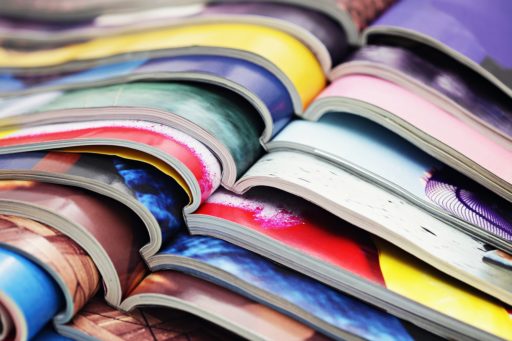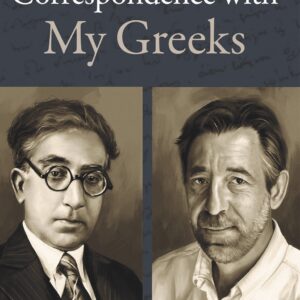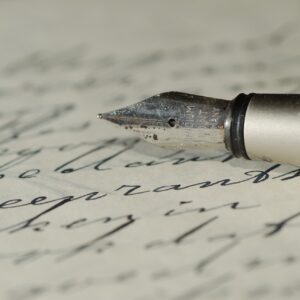Oxford English Dictionary: “Essay” noun. 1597 (Old French essai)
1. The action or process of trying or testing; an Assay 1598.
2. An attempt, endeavour 1598.
8. A short composition on any particular subject; orig. ‘an irregular undigested piece’ (Johnson’s Dictionary), but now said of a finished treatise 1597. This use is app. taken from Montaigne, whose Essais were first published in 1580.
verb. to try, to attempt, to undertake
* * *
I doubt there’s anyone in the country who reads more essays than Robert Atwan. As the Series Editor of the annual collection The Best American Essays, Atwan receives hundreds of submissions each year from writers or magazine editors. He reads through them, then passes about one hundred on to the person chosen as that year’s editor, who makes the final picks. As Atwan notes in his Foreword to BAE 2020, qualifying works must be “essays of literary achievement that show an awareness of craft and forcefulness of thought.”
“Literary achievement” is indeed what strikes me as I read the inclusions in BAE 2020. Rachel Cusk’s “Driving as Metaphor” announces right in its title its awareness of its own language. In “Bed,” David L. Ulin plays with his language for sleeping (“Sleep is like a shore—or no, not a shore, more like the water that laps upon it, an ocean in which I must submerge.”)
* * *
What is an essay, anyway? Well, non-fiction for a start. But beyond that, “the essay” has been defined variously by the various annual editors of The Best American Essays. Here’s some of what André Aciman says in his Introduction to the latest (2020) BAE. Reflecting on Montaigne’s invention of the essay (he “doesn’t write an outline first; he writes because he cannot write an outline”), Aciman notes that “Thinking comes with writing, not before.” (As I used to tell my freshman writing students, we discover what we think by writing—in the process of writing.) And so, Aciman goes on,
This is the very essence of what an essay is. If it knew where it was headed, it would be a report, not an essay; if it had already concluded its argument, it would be an article, not an essay; if it had something to teach or censure, it might be a critique, or an opinion, but not an essay.… An essay is like a story, only…the author may have no idea where he is headed.… ”
As an example of this, take “How to Bartend,” by Rabih Alameddine, which Aciman (tellingly) places first in his collection. Starting with a play on Dickens—”I was the best of bartenders, I was the worst of bartenders”—, Alameddine moves to his 1986 diagnosis of AIDS, then to his past years of soccer playing, then back to the bar and customers who call him “faggot,” then to the World Cup…then back to his AIDS (“I did not die and I did not recover”).
Not knowing where it’s headed, the essay sometimes places stars or numbers between sections, suggesting their possible interchangeability. Several essays in BAE 2020 do this (as I’m doing in this post).
* * *
So, again, what is an essay? Here’s Susan Orlean, from her Introduction to BAE 2005:
Is an essay a written inquiry? A meditation? A memoir? Does it concern the outside world or just probe the writer’s interior world? Can it be funny? Does it have answers or does it just raise questions?… As near as I can figure, an essay can be most of the above.… What it need not be is objective. An essay can certainly present facts and advocate a position, but that seems quite different from objectivity, whereby a writer just delivers information…. Instead, essays take their tone and momentum from the explicit presence of the writer in them and the distinctiveness of each writer’s perspective. That makes essays definitely subjective…
…which “How to Bartend” certainly illustrates. Or take “77 Sunset Me” (from The Best American Essays 2020, as all my examples will be). Here art critic Peter Schjeldahl, recently diagnosed with lung cancer at age seventy-seven, reflects on his long, productive life—from being “a kid crazy about language,” to his first journalism job in Jersey City, to losing his virginity, to his alcoholism, to living out his “passion” for writing, to what it’s like to be dying.
* * *
From Rebecca Solnit’s Introduction to BAE 2019:
Essays are restless literature, trying to find out how things fit together, how we can think about two things at once, how the personal and the public can inform each other, how two overtly dissimilar things share a secret kinship.
Take the engaging restlessness of Alison Townson’s “My Pink Lake and Other Digressions.” This intentionally rambling essay enacts the digressions that are its subject, lurching from the recent death of Townson’s dog, to settling unexpectedly in the Midwest, to her birthday, and more—all along the way inventing metaphors for digression itself: “the long, looping lassos of thought,” “out and out and out, your mind swims into the surf, riding the waves back in….”
* * *
From Robert Atwan’s Foreword to BAE 2001:
What prevents personal writing from deteriorating into narcissism and self-absorption? This is a question anyone setting out to write personally must face sooner or later. I’d say it requires a healthy regimen of self-skepticism and a respect for uncertainty. Though the first-person singular may abound, it’s a richly complex and mutable I, never one that designates a reliably known entity.
Take Leslie Jameson’s “A Street Full of Splendid Strangers.” Grounded in her multiple visits to a photo-slide exhibit by Garry Winogrand, Jameson’s “I” floats among the photos of “ordinary strangers.” “I kept thinking, These women are all my mothers.” And then her self-awareness: “Maybe that sounds absurd or melodramatic, but something about the cool, dark room stirred these wild surges of emotion. Its luminous panels opened my nerves to the unknowable inner lives of people I would never meet.”
* * *
Thanks in large part to the thirty-five years of The Best American Essays, the essay has been elevated to high status in the literary world. There’s even a website devoted entirely to the essay—http://essaydaily.org/—which frequently, naturally, reviews the annual issues of The Best American Essays.
And I can’t close without noting that our Close Reading posts are mostly in this genre. Though occasionally we post book reviews, generally our posts are mini-essays. Here are just a few that illustrate the essay’s characteristics quoted above:
“The author may have no idea where he is headed”: Richard Chess’s “Your Breath in Me”
“Essays take their tone and momentum from the explicit presence of the writer in them and the distinctiveness of each writer’s perspective. That makes essays definitely subjective”: Caroline Langston’s “My Life in Books”
“An essay can think about two things at once, how the personal and the public can inform each other, how two overtly dissimilar things share a secret kinship”: George Dardess’s “Wallace Stevens in Vietnam”
Writing personally without narcissism, but with “a richly complex and mutable I”: Laura Bramon Hassan’s “Gitanjali”
And many more.
Peggy Rosenthal has a PhD in English Literature. Her first published book was Words and Values, a close reading of popular language. Since then she has published widely on the spirituality of poetry, in periodicals such as America, The Christian Century, and Image, and in books that can be found here.





